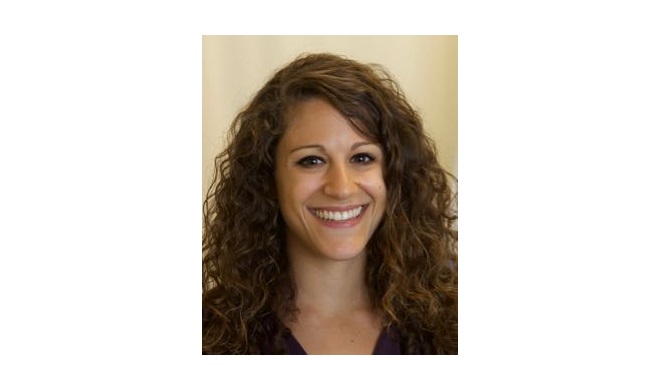This is the fifth installment of our Alumni Spotlight series, which features interviews with former IRAP students who have become strong advocates and leaders in their fields of practice.
Meet Jessica Caplin, former Chapter Co-Director of the IRAP chapter at University of California, Berkeley, and current Field Advisor at UNHCR.
The views expressed here are entirely her own.
How did you become involved with IRAP and how did IRAP impact your law school experience?
I joined IRAP in the summer after my 1L year, when the incoming Chapter Director asked me if I would like to support an ongoing case. At the time, I was in Serbia conducting research with the UN Refugee Agency (UNHCR), and I knew that I wanted to continue serving refugees through my own casework. By my 3L year, I was a Chapter Co-Director, helping to oversee 43 inspiring and dedicated Berkeley Law students representing nearly 40 refugees in Iraq, Afghanistan, Lebanon, Jordan, and the United Arab Emirates.
It is unquestionable that IRAP had a dramatic impact on my law school experience. On a personal level, I was able to work on two Iraqi SIV cases and had the ultimate joy of watching one of my clients—a young engineer who had been hunted by Shia militia because of his work for the U.S. government—receive his visa and resettle in the United States. On a broader level, I was able to witness the impact of our work in expanding the drive to defend refugees throughout the law school. As the refugee crisis around the world unfolded, my Chapter harnessed the rising concerns of the Berkeley student body. We were able to draw significant numbers of students and faculty to events touching on the situations in Syria, Lebanon, and Europe, to a fundraiser in support of one of our clients in immediate need, and to briefings on current legislation impacting refugees. Through this work, my powerful team and I were able to advocate, educate, and motivate the broader Berkeley community, while continuing to support the most important people: our own clients.
IRAP has a unique model of partnering law students with pro bono lawyers — please describe your experience working with attorneys on urgent refugee resettlement cases.
My experiences working with pro bono lawyers through IRAP were inspiring. My first IRAP case involved a family that had been stuck in administrative processing for over four years with no indication of resolution. Despite these delays, our pro bono attorney never ceased to consider new avenues to advance our clients’ cause and repeatedly promised her service for as long as our clients wished to pursue it. Though our attorney’s day-to-day role was far from refugee law, she nevertheless devoted herself to the service of a family in danger.
Similarly, in my second case, under the supervision of three pro bono attorneys, my team spent countless hours on Skype calls, emails, brief drafting, information requests, and general advocacy on behalf of our client. It was endlessly inspiring to watch these attorneys dedicate as much time and passion to their pro bono work as to their regular caseload. Additionally, one of the attorneys, a child of Palestinian immigrants, was able to communicate directly with our client in Arabic and use his own immigration experiences to encourage our client when the case stagnated. This touch—beyond even the legal expertise—added a powerful personal connection for our client, whom we were eventually able to welcome to the United States.
What have you been doing since you graduated from Berkeley Law in 2016?
Since graduating from Berkeley Law, I have been working as a Field Advisor with UNHCR’s Regional Office in Washington, DC. My current work focuses on refugees from the Northern Triangle of Central America—Guatemala, Honduras, and El Salvador—who are fleeing violence in their homes in pursuit of safety and asylum in the United States, as well as on integration efforts for recently arrived refugees and asylum seekers from around the world. As part of that effort, I have met with service providers, refugees, and asylum seekers in 16 small towns and cities along the length of the U.S. southern border and interior of the United States, as well as two border cities in Mexico, to better understand the challenges and needs of those seeking refuge and those hoping to best serve them.
In what ways has your involvement with IRAP in law school impacted your career?
My work with IRAP inspired me to continue working on behalf of refugees, not only from the Middle East, but around the world. On a practical level, it has given me a stronger understanding of the U.S. and international law concerning refugee resettlement, skills for providing direct service to those in need, and advocacy tools that groups like IRAP use when engaging with the public.
At a time when refugees are more politicized than ever, how do you engage with the issue on a personal level?
Much of the conversation surrounding support for refugees today is linked to questions about national security, as though the two are mutually exclusive, and it can be easy to feel boxed into this framework. Having previously worked in the national security apparatus as an FBI Intelligence Analyst, it is clear to me that in their purest forms, national security and human rights should be one and the same, and that a human rights-based approach to national security is our strongest defense for long-term global security. The values of human dignity and stability are universal building blocks for strong, prosperous lives, societies, and regions, and our interconnected world renders that reality all the more true today. Standing up for those who never wished to be made vulnerable, empowering their voices, and creating space for them to rebuild their futures is thus not only a moral imperative but smart security policy, and I believe we can think and speak about those issues in the same breath.




Comments are closed.